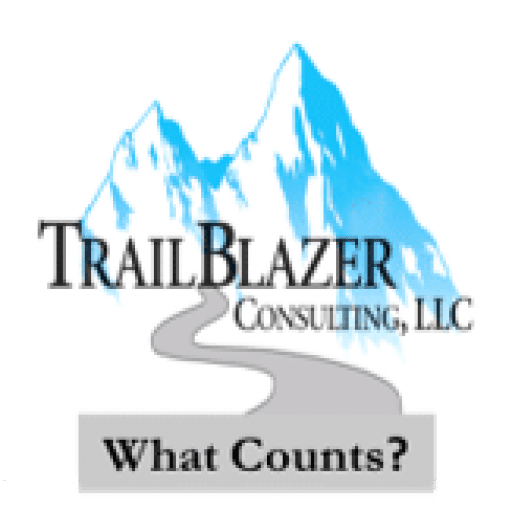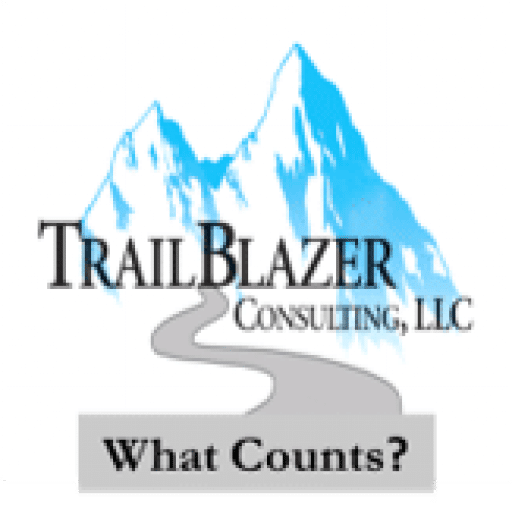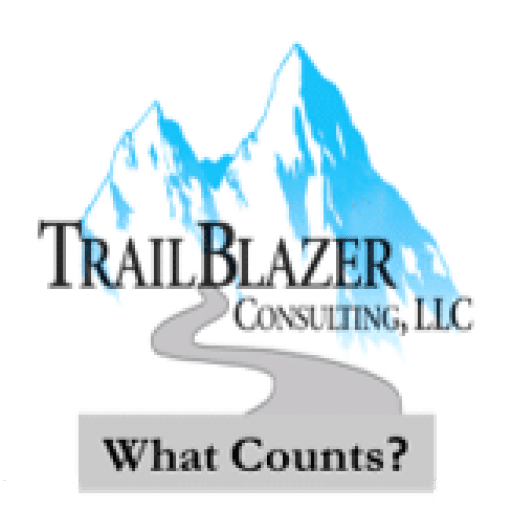Episode Transcript
[00:00:01] Speaker A: It's reflection time.
Hello, thank you for joining us. This is what counts. A podcast created by Trailblazer Consulting. Here we highlight proven solutions developed through our experience working with companies across various industries, and we talk about how you can apply these solutions to your company. We share our experience solving information management challenges like creating and implementing a records retention schedule, creating an Asset data hire key, or helping with email management. This is Lee, and in this episode Maura and I will discuss getting to the 65th published episode in this podcast and reflecting on the last ten years of operations.
How's that sound, maura?
[00:00:44] Speaker B: 65 episodes published before this one. That's amazing to me. It's been two and a half years since you first suggested this, and I said, I don't know, but we'll give it a try. And more than two years since we dropped the first episode. And I learned what drop an episode means.
[00:01:06] Speaker A: Excellent. Yes, we do it every two weeks, and we've been consistent on that. I think I missed one 4 July or something like that and dropped it on a Tuesday.
[00:01:14] Speaker B: But anyway exactly. And that part of that discipline is really important. Our listeners don't know, but we try and record every Friday, and that's a big deal too, so that we have this time set aside and we make sure that we keep on it. And so I was thinking about that, and we also recently hit our 10th anniversary as Trailblazer Consulting. That also came in June of this year, which is also kind of amazing to me. So ten years in our business, two years in our podcast, and it's also September. It's time to go back to school. Even though I haven't been to school in a long time, it always makes me feel like it's a good opportunity to look ahead and look back. And as we've gone through the summer of episodes around Asset Data and some of the other big topics that we covered in the past few months, I've started having this kind of theory form in my head, in the back of my head, and I want to try it out on you and our listeners.
When I started out in records management many years ago was very much of a paper based thing, and we've talked about that before.
[00:02:27] Speaker A: It was called records management back then too.
[00:02:30] Speaker B: Also it was called records management. And today we talk about information governance when we were talking about records management. If you say those words, people get a picture in their mind instantly of dusty boxes full of paper in a basement or in a warehouse. And that was the reality that both of us started our careers in, was dusty boxes full of paper.
And the record aspect of things was kind of the end of a business process.
So you did a lot of things and at the end of it there was a contract or an invoice or a letter. Do you remember? Correspondence files used to be a very big part of every record schedule and every inventory, and that is nowhere in our world these days, but it was so that passive approach to records being after the fact and the real job of a records manager in a lot of people's minds was just keep those boxes safe. I remember a cartoon of someone standing in a doorway of, like, a service counter of a record center taking a file very seriously. Taking a file from a person who's dropping something off and then turning around and throwing it out into a big pile full of trash, saying I realized how much easier this job was once I realized that nobody ever asked for anything back.
And that was for the beginning of our careers, at least my career in records management. That was the attitude a lot of people had.
I, on the other hand, felt like records were super important all the time and that every record was equally important.
When you go out of the paper world into the electronic world and you go out of documents into data, everything can't be equally important. There's just way too much of it. So that was like one of the first evolutions that we've gone through was, yes, you got to have some priorities here. Some records, some data are more valuable than others. How do you decide that? Well, coming again from that records management passive, we've got to prove something happened if somebody questions us, sort of starting point.
We looked at risk as a reason for maintaining records and for adding value. So the records that would help you guard against a risk or prove that you had completed a task, or you were in compliance with the law, or somebody owed you money and you needed them to pay, or you owed somebody money and you had paid. And all those records that demonstrated those things, they were written into the rules. If you look back into an old records management textbook, you will find a definition of vital records. And vital records are records that guard the fiscal and legal rights and obligations and interest of the company, its employees, and its customers.
Paraphrasing a little. And the reason that they created that definition of vital records was because that subset of records got extra special treatment. Typically, somebody made another copy and sent it off site. So you had the main copy that you used every day in the file room. And then you had the vital record copy that you sent 100 miles away so it couldn't be destroyed by the same geographic disaster, local disaster. Because if you couldn't get downtown because there was a fire and you had to do payroll or you had to run accounts payable or worse, had to get money in so you'd be able to pay things, you needed another place where those records existed and you couldn't risk them. Being lost, that type of definition of vital. Record, again, not a thing anymore. And it's interesting, sometimes when we're working on a retention schedule with a client who maybe came from that paper side of things, they still want to do that. They want to designate some records as vital, not realizing that the next step of extra copies in a different geographic location is unnecessary now.
So records and information have changed, attitudes have changed. One of the things that I think is coming out, which is a really good change, is we're not just about passive defensive guard against risk, but actually using information to make your business better, to grow, to look for missing revenue, opportunities that you've missed revenue that you need to capture sooner or that you could capture sooner. Making better strategic decisions and also freeing up the time of your people from looking for stuff and managing information to actually doing your business.
And I think that move sorry, that move just let me finish this thought. That move from passive defensive to active, using your information to grow your business, is a really good change in the world of going from records management to information governance.
[00:07:44] Speaker A: Completely, 100% agree. And everything you explained well, everything I heard in the area where you were explaining records management was really an administrative cost to whatever entity you were dealing with. And it's actually moving towards this increasing value. It's not an administrative cost anymore. That information governance. It's a real thing that has value.
[00:08:12] Speaker B: To it, which is a huge change, because there's no question that managing information correctly costs some money. It's going to be an investment, not sunk cost. It's an investment in the business. Your information is one of your most valuable assets. That's a phrase that's been out there for a while. But I think we are finally getting to the point in how we approach I don't just mean you and me. All of us in the information governance space are getting to the point of approaching information Governance as a strategic value add to any organization.
[00:08:51] Speaker A: Well, yes, if you want to bring that up, then we can bring up the fact that what we reflected on just the other day, and that is people do come to us with symptoms of problems, and we help them get to the root cause of that issue and help them with their data and their information.
[00:09:14] Speaker B: That's a really good point. I had forgotten that today when I was thinking through what we were going to talk about. That is universal, almost. When somebody calls us and they say, oh, we just need X, or oh, we have this problem, we think we need X hardly ever. Is that the final answer? So, for instance, we had a big global client call up and say, we can't find our business cases when it's time to see if we proved the logic of the business case. Basically, they were talking about capital projects, that they put together a business case to support the investment, to justify the money they were going to spend on this capital improvement. And then they, as they first stated it to us, couldn't find that document where they listed all the benefits to see if they actually realized the benefits. So it sounded like a document management problem. And there certainly were some elements of document management that were ripe for improvement in that situation. But the problem really was with the capital business process and how developing a business case, moving to doing the construction, doing the development activity and the most important step, the crossover into active operation. And the data flow that should have gone along from beginning of idea to business case to construction to operations, that data flow was broken. And that was where the problem was. That business case can't find the business case document. That was just a symptom. And that happens to us a lot. People will ask us about something technical. They think they're asking a technical question, oh, I just need a records retention policy. And then the more we talk to them, what they need is to know where their data is so that they can apply the appropriate security to it, apply the appropriate retention to it, produce it when they need to for audit or for discovery, and actually use their data to do their jobs better all the time. So I love that about what we do. That our problem solvers. And that the information governance piece of it, is how we approach these problems and one of the ways that we help businesses improve.
[00:11:43] Speaker A: Excellent. Where do you want to go from here? The best part of what I heard and all that was it went from records management to information management that went from admin cost to value and capital investments now in controlling that information. And that's huge if you ask me.
[00:12:03] Speaker B: I agree, those two statements are huge. And the third one I would add to it is from passive, just keep stuff to active use of information in your business.
[00:12:14] Speaker A: Yeah, that's a great point.
[00:12:17] Speaker B: I think that's a good stopping point for today. We've got some other big topics coming up soon. I think we've previewed a couple of times that contract management is a big thing that companies deal with around the subject of information governance. And the great thing about contract management is it's always part of your revenue stream. So it's directly in line with this epiphany that we've had or that I've had. So stay tuned. Learn more about that and other exciting adventures and information governance in our next 65 more episodes maybe.
[00:12:55] Speaker A: Awesome.
If you have any questions, please send us an email at info at trailblazer us.com or look us up on the web at WW trailblazer us. Thank you for listening and please tune into our next episode. Also, if you like this episode, please be a champion and share it with people in your social media network. As always, we appreciate you, the listeners. Special thanks goes to Jason Blake, who created our music.
[00:13:21] Speaker B: Thanks, Lee. And thanks everyone. See you next time.


